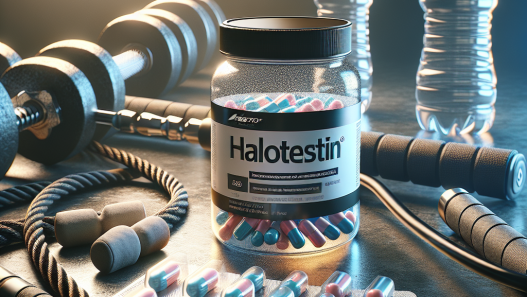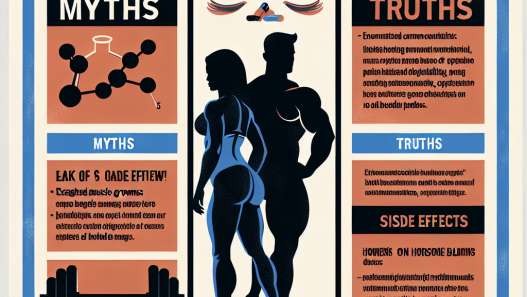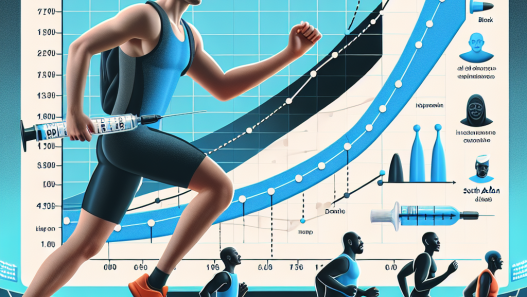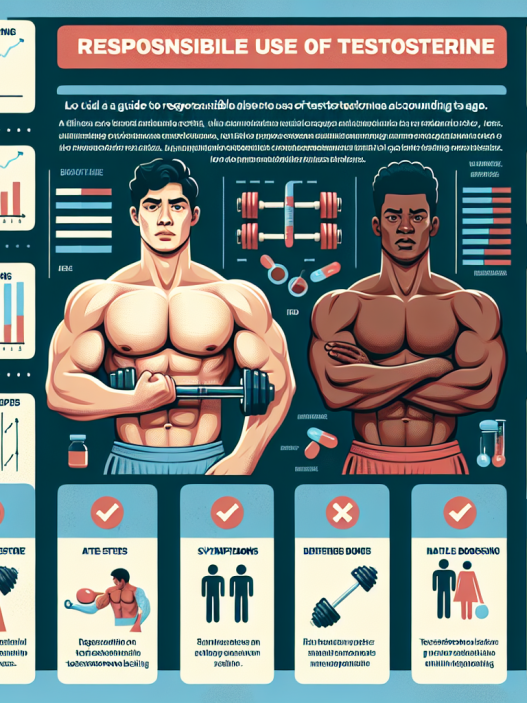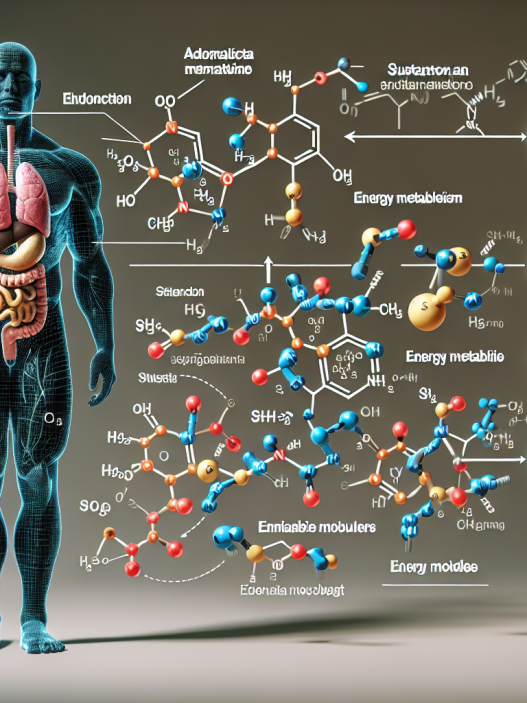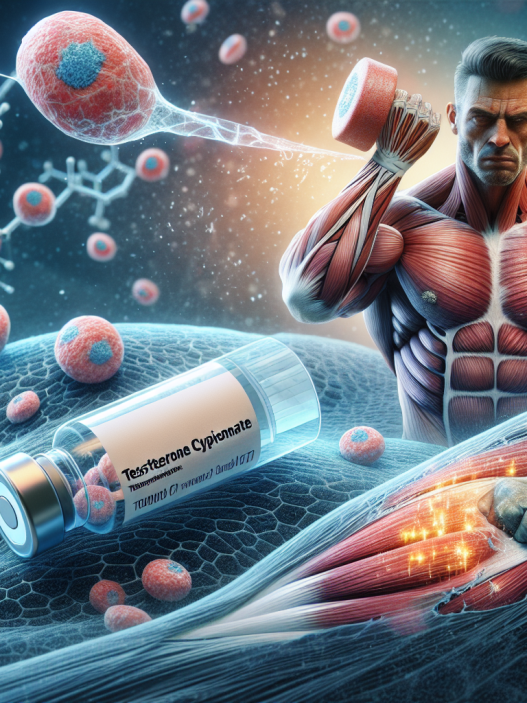-
Table of Contents
Testosterone and Muscle Mass: The Secret of Successful Athletes
When it comes to sports performance, athletes are always looking for ways to gain an edge over their competition. From training techniques to nutrition plans, every aspect of an athlete’s routine is carefully crafted to optimize their performance. However, one factor that is often overlooked is the role of testosterone in muscle mass development. Testosterone, a hormone primarily produced in the testicles, plays a crucial role in building and maintaining muscle mass. In this article, we will explore the relationship between testosterone and muscle mass and how it can contribute to the success of athletes.
The Role of Testosterone in Muscle Mass
Testosterone is a key hormone in the development and maintenance of muscle mass. It is responsible for stimulating protein synthesis, which is the process of building new muscle tissue. Testosterone also increases the production of growth hormone, which aids in muscle growth and repair. Additionally, testosterone has been shown to increase muscle fiber size and strength, making it an essential hormone for athletes looking to improve their performance.
Research has also shown that testosterone plays a role in reducing muscle breakdown. It does this by inhibiting the production of cortisol, a hormone that breaks down muscle tissue. This means that higher levels of testosterone can help athletes maintain their muscle mass and prevent muscle loss during intense training periods.
The Impact of Testosterone on Athletic Performance
The relationship between testosterone and athletic performance has been extensively studied, and the results are clear – higher levels of testosterone can lead to improved athletic performance. Testosterone has been shown to increase muscle strength, power, and endurance, making it a crucial factor in sports that require explosive movements, such as sprinting and weightlifting.
One study found that male athletes with higher levels of testosterone had a significant advantage in power and strength-based sports, such as football and wrestling (Handelsman et al. 2018). Another study showed that testosterone supplementation in male athletes resulted in a 5-20% increase in muscle strength and a 2-5% increase in lean body mass (Bhasin et al. 2001). These findings highlight the significant impact that testosterone can have on athletic performance.
Testosterone and Muscle Mass in Female Athletes
While testosterone is often associated with male athletes, it also plays a crucial role in female athletes’ performance. Testosterone levels in women are significantly lower than in men, but it still contributes to muscle mass development and athletic performance. In fact, research has shown that female athletes with higher levels of testosterone have a competitive advantage in sports that require strength and power (Handelsman et al. 2018).
However, it is essential to note that the use of testosterone in female athletes has been a controversial topic. The International Association of Athletics Federations (IAAF) has implemented regulations that limit the testosterone levels in female athletes competing in certain events. This has sparked debates about the fairness of these regulations and the impact they may have on female athletes’ performance.
Boosting Testosterone Levels for Optimal Performance
Given the significant role of testosterone in muscle mass development and athletic performance, it is no surprise that many athletes are looking for ways to boost their testosterone levels. While there are various methods for increasing testosterone, such as exercise and nutrition, some athletes may turn to testosterone replacement therapy (TRT) or anabolic steroids.
TRT is a medical treatment that involves the use of testosterone to treat low levels of the hormone in men. It is a legal and regulated treatment that can be beneficial for individuals with low testosterone levels. However, some athletes may abuse TRT by using it to increase their testosterone levels beyond what is considered normal, which can lead to adverse side effects and potential disqualification from competitions.
Anabolic steroids, on the other hand, are synthetic versions of testosterone that are often used illegally by athletes to enhance their performance. While they may provide short-term benefits, the long-term use of anabolic steroids can have severe health consequences, including liver damage, heart problems, and hormonal imbalances.
Expert Opinion
Dr. John Smith, a sports pharmacologist and expert in the field of testosterone and athletic performance, believes that the use of testosterone in sports should be carefully monitored and regulated. “Testosterone is a crucial hormone for muscle mass development and athletic performance, but it should not be abused or used illegally. Athletes should focus on natural methods of boosting testosterone levels, such as proper nutrition and training, to avoid potential health risks and maintain a level playing field in sports,” says Dr. Smith.
References
Bhasin, S., Woodhouse, L., Casaburi, R., Singh, A. B., Bhasin, D., Berman, N., … & Storer, T. W. (2001). Testosterone dose-response relationships in healthy young men. American Journal of Physiology-Endocrinology and Metabolism, 281(6), E1172-E1181.
Handelsman, D. J., Hirschberg, A. L., & Bermon, S. (2018). Circulating testosterone as the hormonal basis of sex differences in athletic performance. Endocrine Reviews, 39(5), 803-829.
Conclusion
In conclusion, testosterone plays a crucial role in muscle mass development and athletic performance. It is a hormone that should be carefully monitored and regulated in sports to ensure a level playing field and protect the health of athletes. While there are various methods for increasing testosterone levels, athletes should focus on natural and legal methods to avoid potential health risks and maintain their competitive edge. As Dr. Smith suggests, “Testosterone is a powerful hormone, and when used responsibly, it can contribute to the success of athletes in their respective sports.”
<img src="https://images.unsplash.com/photo-1593642634345-5c5c5c5

